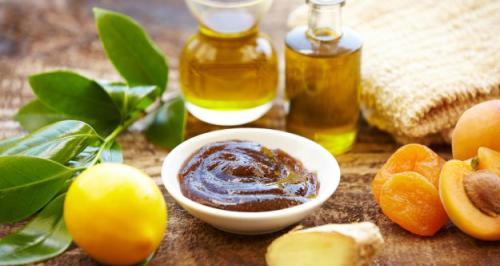Organic Skin Care Products VS Non Organic | Know the Difference

When you are dealing with body care products, it is good to be informed about what you are buying. Knowing what product contains is important, especially to avoid unpleasant surprises that could be harmful to the skin, face or body. Cosmetics products are divided between natural cosmetics and organic cosmetics, but what are the differences?
As everyone knows, cosmetic means a substance applicable to healthy and intact skin and accessible to mucous membranes (i.e. mouth, nose, genitals, and eyes) without therapeutic and harmless effects inappropriate and daily use.
Natural cosmetics are not much different than what is learned from the definition, with respect to which they are regulated by the regulations in force. The natural cosmetics are so named because they are obtained from natural substances, therefore without water and consequently without preservatives that could favor the development of micro-organisms that could prove to be harmful.
In addition, natural cosmetics are not tested on animals, cannot contain elements derived from petroleum, synthetic preservatives and dyes, silicones, formaldehyde, alcohol, parabens etc.
An example of 100 percent natural cosmetics can be vegetable oils, both for the face and for the body. The natural ingredients that can be found in natural cosmetics are those of plant and animal origin such as eggs, honey, milk or mineral origin, such as copper, aluminum, Prussian blue etc. The types of processes authorized on natural products are the distillation, drying or centrifugation.
Although naturally original but not 100 percent, there are cosmetics that contain both natural and artificial substances, such as emulsifiers, preservatives and stabilizers, although harmless to the body. Choosing the beauty products carefully is really important and the secret is to check the ingredients and make sure that there is an INCI indication that indicates the true quality of the cosmetic, i.e. The absence of ingredients of chemical derivation but only of vegetable origin is 100 percent.
For organic cosmetics we mean, cosmetics products made with plant extracts, deriving from biologically cultivated plants and excluding any use of synthesis or GMO elements, or Genetically Modified Organisms. Organic cosmetics must have a valid organic certification, without which they cannot be defined. When organic products contain artificial substances, the appropriate commissions will decide whether the product can be recognized as organic or not. An organic cosmetic is a product, whose 10% of the total weight must contain ingredients from organic farming. In particular, in its total formula must be included at least 95% of organic ingredients and the remaining 5% may consist of synthetic additives. The percentage of natural ingredients from certified organic farming also includes the percentage of water present in the extract provided it comes from an admitted physical process (for example distillation, hydration water, cold extraction by means of pressurized water, etc.)
Organic cosmetics represent the choice towards sustainable development. Organic does not mean that it’s only natural, but also healthy, since the biological practices do not include the use of synthetic chemicals, but substances produced respecting nature and the person: in bio cosmetics everything happens considering the whole agricultural ecosystem, exploiting the natural fertility of the soil, promoting biodiversity. In whole, we can say that choosing an organic cosmetic means protecting the environment of people and animals.
The way to know if a product is organic is to check the ingredients and make sure that there is an INCI indication that indicates the true quality of the cosmetic, i.e. the absence of ingredients of chemical derivation but only of vegetable origin is 100 percent.
The cost of organic products is in line with the products of traditional perfumery, the difference lies in what is inside. The cost of natural ingredients, even more so if organic, is higher than the synthetic counterparts (which sometimes have very low costs) as they derive from a process of cultivation, harvesting, and processing much more demanding, certified organic raw materials are more expensive because production yields are smaller, 100% natural perfumes are four times more expensive than synthetic perfumes. There are various products that all-time favorite of customers such as lipstick, foundation, Mascara, Nail color, Lipgloss and various other products that are organic and good for daily use.
It must also be considered that formulating effective cosmetics with natural ingredients is far from easy and that high-quality raw materials and research must be used to ensure the durability of cosmetics with poor preservatives (do not use them to prevent the onset of allergies) of the appropriate formulation. The Non-organic product varies on the skin type so we can’t decide that which of the following product can cause us allergy or not.
Post Your Ad Here
Comments